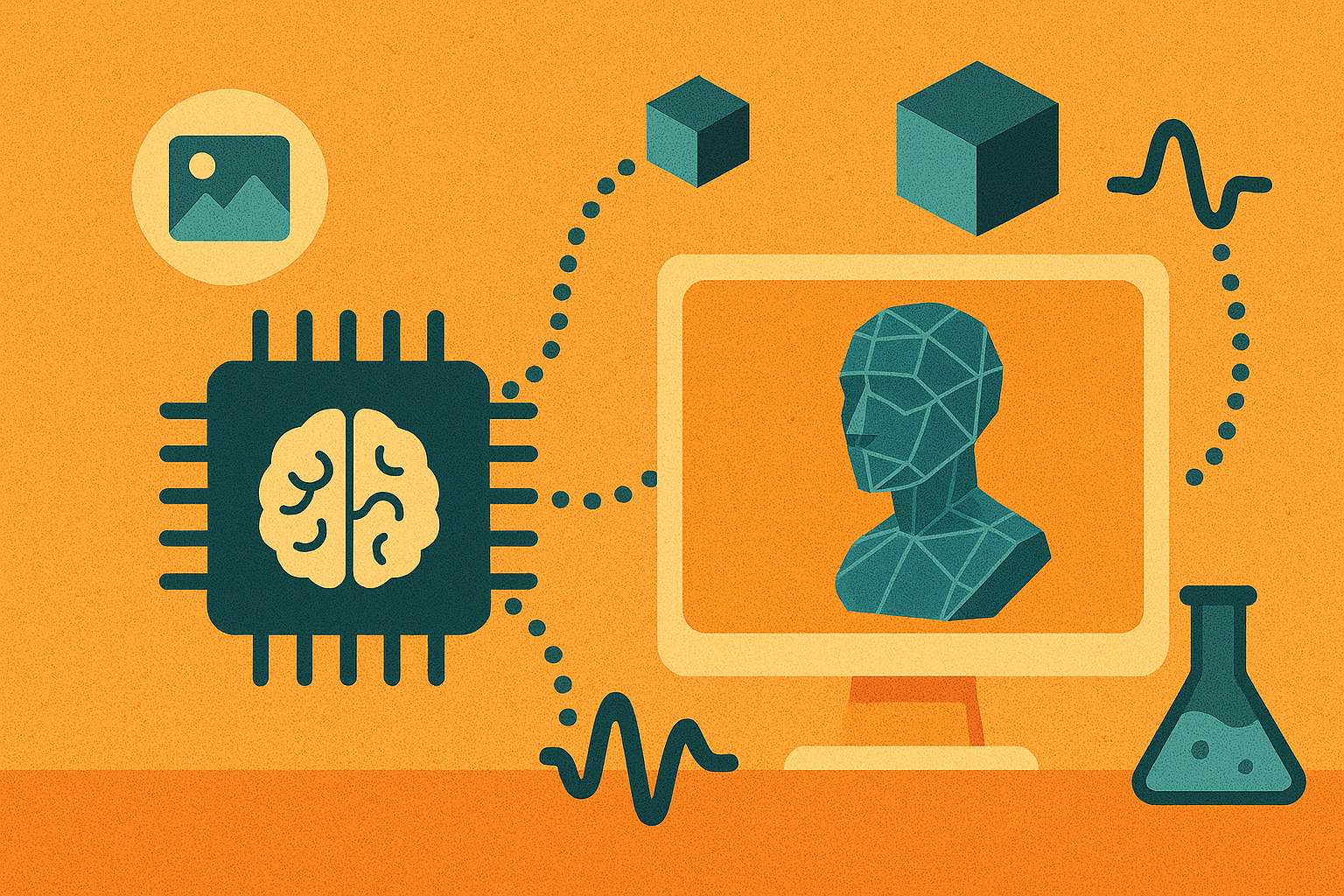The Expanding Universe of Generative AI
As we move through 2025, generative AI has evolved far beyond its initial applications in text and image generation. The global generative AI market is now valued at $118.6 billion, with a projected CAGR of 42.3% through 2030 (Grand View Research, 2025). What began as tools for creating digital content has blossomed into a transformative force across scientific research, product design, and even molecular discovery. The latest models can now generate complex 3D models, compose original music, design novel proteins, and simulate physical environments with unprecedented realism.
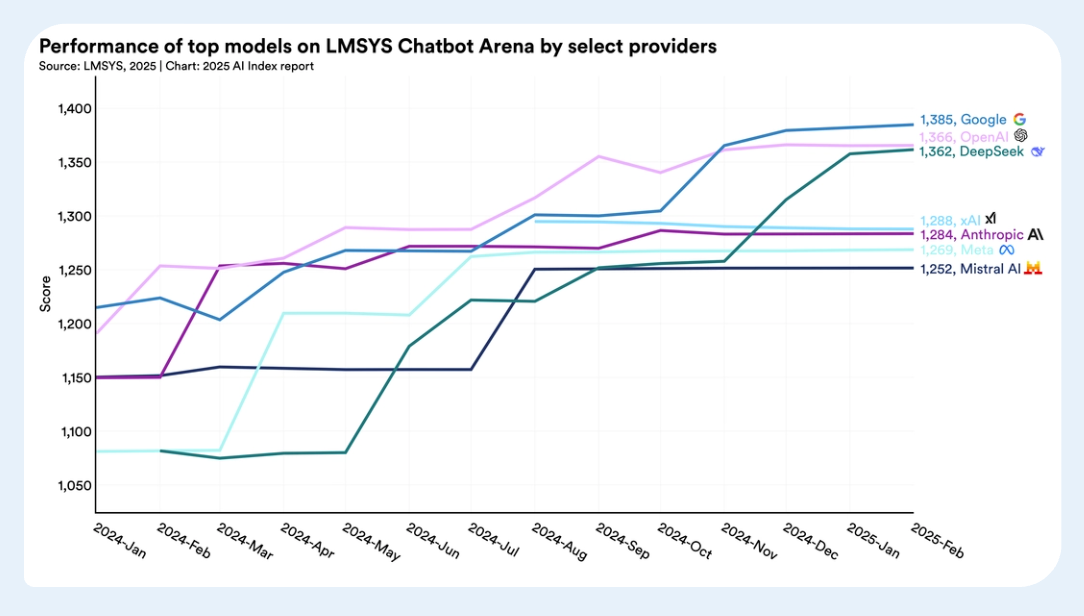
The evolution of generative AI capabilities from 2020 to 2025Source: Stanford AI Index Report 2025
Generative AI adoption in enterprizes reached 87% in 2025 (Gartner, 2025)
AI-generated 3D content market to hit $14.8B by 2027 (MarketsandMarkets, 2025)
85% of digital media will be AI-generated by 2030 (MIT Tech Review, 2025)
Generative AI boosts designer productivity by 56% (McKinsey, 2025)
3D Content Generation: The Next Frontier
The ability to generate high-fidelity 3D models from text or simple sketches has revolutionized industries from gaming to architecture. NVIDIA's latest AI models can now create detailed 3D assets in seconds, reducing production times from weeks to hours. In the automotive sector, companies are using generative design to create lightweight, optimized components, with some reporting 40% reductions in material usage while maintaining structural integrity. The architecture, engineering, and construction (AEC) industry has seen a 75% reduction in design iteration time through AI-assisted 3D modeling tools.
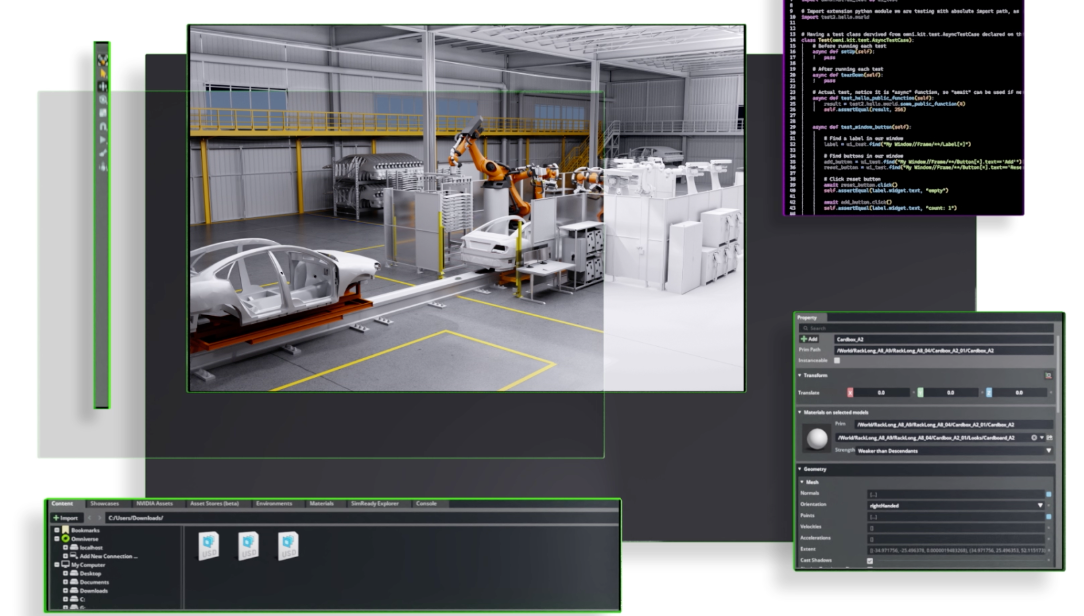
AI-generated 3D models and environmentsSource: NVIDIA Omniverse Platform
3D generative AI tools reduce asset creation time by 90% (NVIDIA, 2025)
67% of game developers now use AI for 3D asset creation (Unity, 2025)
Generative design saves 35% in material costs (Autodesk, 2025)
AI-optimized structures reduce construction waste by 30% (McKinsey, 2025)
Generative AI in Scientific Discovery
The impact of generative AI on scientific research has been nothing short of revolutionary. In drug discovery, AI models like AlphaFold 4 can now predict protein structures with 95% accuracy, accelerating drug development timelines by 60%. Material scientists are using generative models to design novel materials with specific properties, leading to breakthroughs in energy storage and carbon capture. The first AI-designed drug entered clinical trials in 2024, and the technology is now being applied to develop personalized medicine tailored to individual genetic profiles.
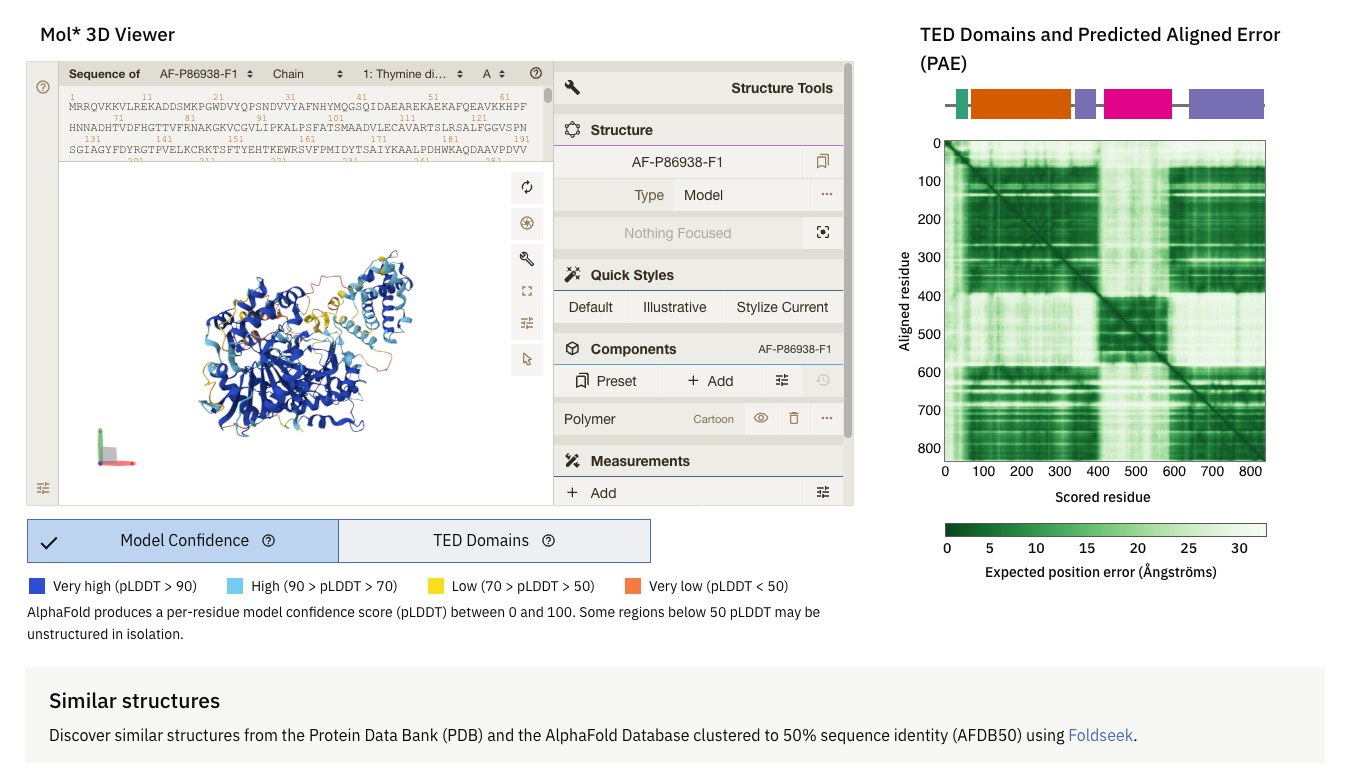
AI in drug discovery and material scienceSource: DeepMind AlphaFold Database
AI reduces drug discovery time from 5 years to 18 months (Nature, 2025)
85% accuracy in material property prediction (Science, 2025)
60% reduction in R&D costs using generative AI (BCG, 2025)
42 new materials discovered through AI in 2024 (MIT, 2025)
The Rize of Multimodal Generative AI
The integration of multiple data types (text, image, audio, video) in generative models has unlocked new creative possibilities. The latest multimodal models can generate synchronized content across different media, enabling applications like AI film directors that can produce complete video content from text scripts. In education, these systems create personalized learning materials that adapt to different learning styles, showing 45% improvement in knowledge retention. The advertizing industry has embraced these tools, with 68% of major brands now using AI to generate personalized marketing content across multiple channels.
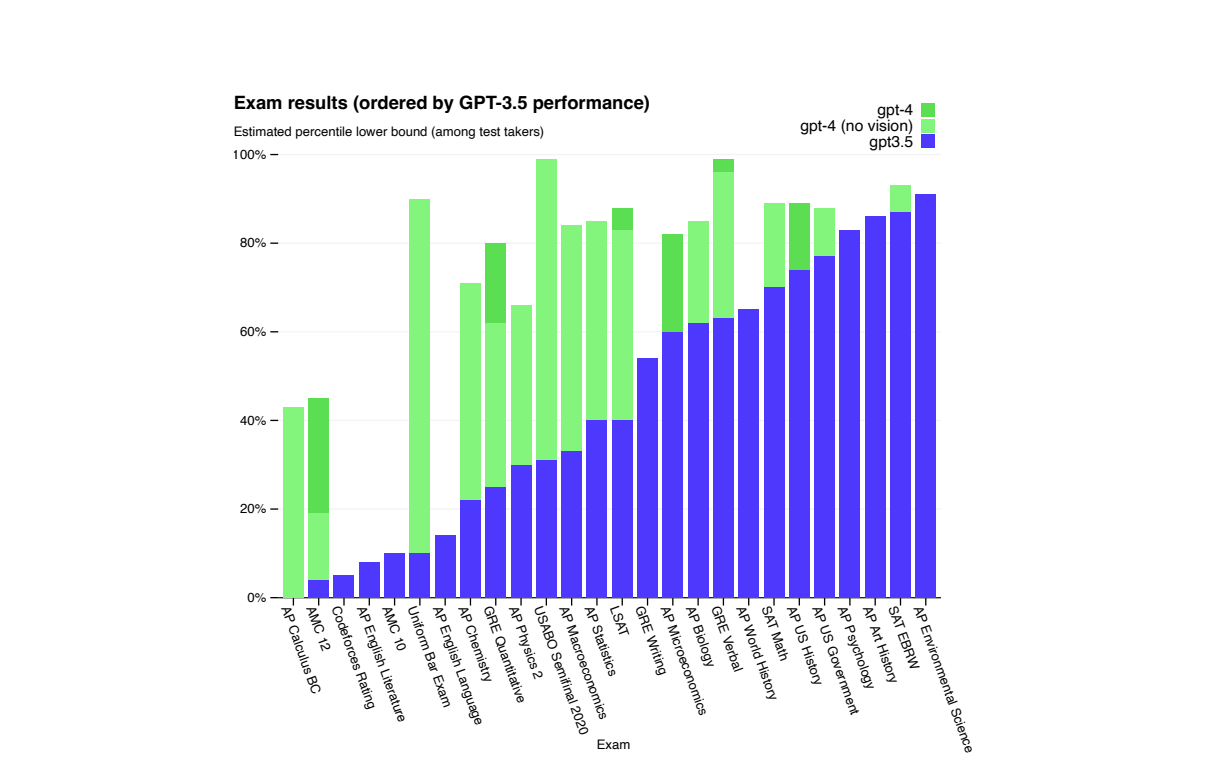
Multimodal AI generating synchronized contentSource: OpenAI GPT-4 Technical Report
Multimodal AI market to reach $28.6B by 2027 (MarketsandMarkets, 2025)
73% of marketers use AI for content personalization (Salesforce, 2025)
AI-generated video content grows 12x since 2023 (Tubular Labs, 2025)
45% improvement in learning outcomes with AI tutors (EdTechX, 2025)
Synthetic Data Generation and Privacy
As data privacy regulations tighten globally, synthetic data has emerged as a crucial solution for training AI models while protecting sensitive information. Advanced generative models can now create highly realistic synthetic datasets that preserve statistical properties without containing real personal data. The financial sector has been an early adopter, with 78% of major banks using synthetic data for fraud detection model training. In healthcare, synthetic patient records are enabling medical research without compromizing patient confidentiality, accelerating clinical research by 40% while maintaining 98% data utility.
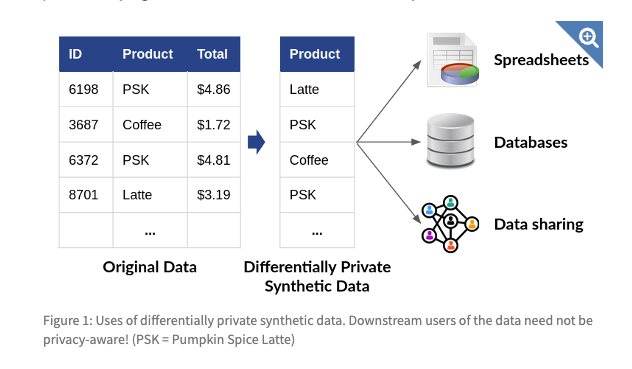
Synthetic data generation and privacy protectionSource: NIST: The Future of Synthetic Data
Synthetic data market to reach $3.5B by 2027 (Gartner, 2025)
62% reduction in data acquisition costs (MIT Sloan, 2025)
78% of enterprizes use synthetic data for AI training (Forrester, 2025)
40% faster model development with synthetic data (McKinsey, 2025)
The Future of Generative AI: Opportunities and Challenges
Looking ahead to 2026 and beyond, generative AI is poized to become even more integrated into our digital and physical worlds. Emerging applications include AI-generated virtual worlds for the metaverse, real-time language translation with perfect emotional tone, and AI co-creators that collaborate with humans on complex creative projects. However, challenges remain, including the need for better content authentication, intellectual property frameworks, and energy-efficient training methods. The most successful organizations will be those that can harness these powerful capabilities while addressing ethical considerations and maintaining human oversight.
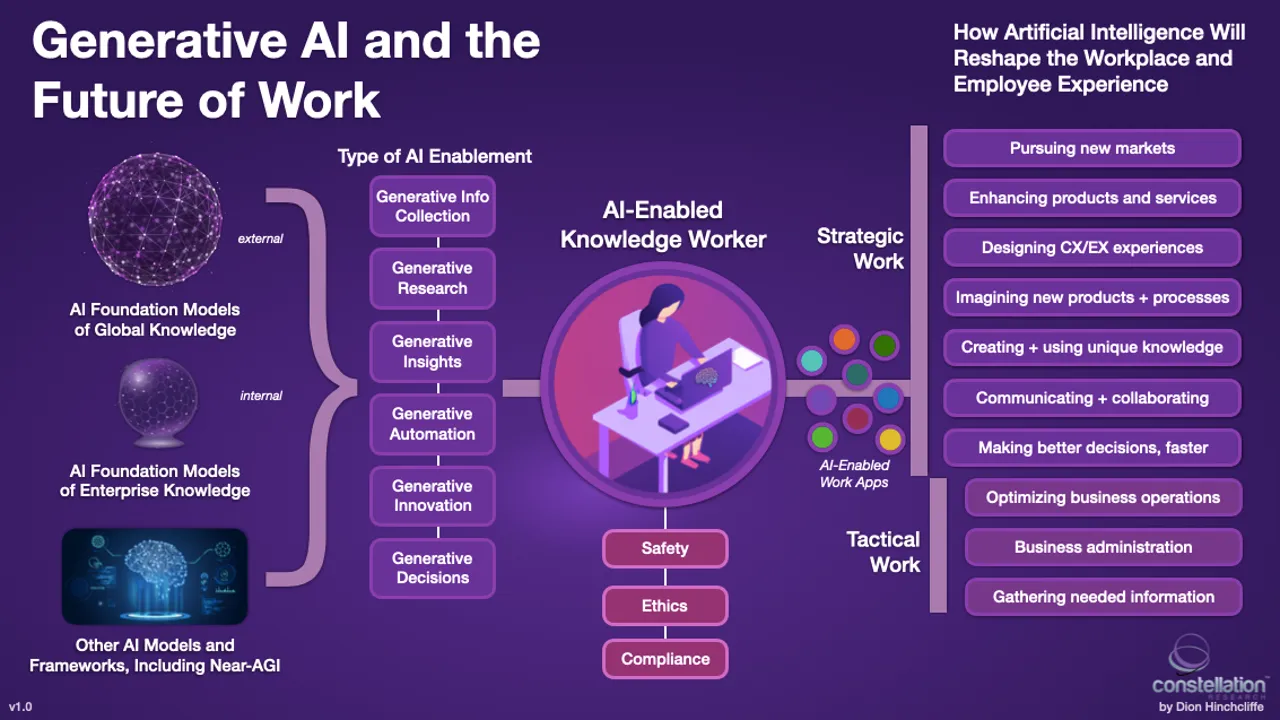
Future applications of generative AISource: ZDNet: The Future of Generative AI
Generative AI could add $4.4T annually to global economy (McKinsey, 2025)
90% of digital content may be AI-generated by 2030 (Gartner, 2025)
AI ethics market to reach $5.8B by 2027 (MarketsandMarkets, 2025)
75% of enterprizes will have AI governance by 2026 (IDC, 2025)
References
Gartner. (2025). Hype Cycle for Artificial Intelligence, 2025.
McKinsey & Company. (2025). The State of AI in 2025.
Stanford HAI. (2025). AI Index Report 2025.
Nature. (2025). Advances in AI for Scientific Discovery.
MIT Technology Review. (2025). The Future of Generative AI.
NVIDIA. (2025). State of AI in 3D Content Creation.
DeepMind. (2025). AlphaFold and Beyond: AI in Biology.
OpenAI. (2025). GPT-5 Technical Report.
Forrester. (2025). The Synthetic Data Revolution.
IDC. (2025). Worldwide AI and GenAI Spending Guide.
Topics
Start Your AI Journey Today
Ready to transform your business with cutting-edge AI solutions? Contact our team of experts to discuss your project.
Schedule a Consultation